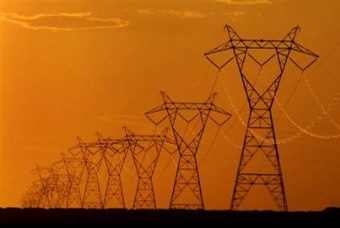BEIJING:
The Matiari-Lahore transmission line project is another example of how the China-Pakistan Economic Corridor (CPEC) has contributed towards improving people’s livelihood and economic development in Pakistan.
“The project will offer local people access to stable and high quality electricity and it’s of great significance to breaking bottleneck of South-North power transmission in Pakistan,” Chinese Foreign Ministry’s Spokesperson Wang Wenbin said during his regular briefing held on Monday.
According to media reports, the first power grid project on CPEC, the Matiari-Lahore transmission line project contracted by the State Grid Corporation of China, has started power transmission from June 25.
This is the first direct current transmission line in Pakistan.
On the vast desert in eastern Pakistan, a 900-kilometer line stretches from Matiari to Lahore, spanning most of the areas in Sindh and Punjab. This is the ±600kV HVDC transmission line, a power project with the highest voltage and the only direct-current transmission in Pakistan. It is also the only key grid project under CPEC.
The spokesperson said, as important pilot project of the Belt and Road Initiative (BRI), CPEC has made significant progress in various sectors including energy since its launch.
This has not only boosted Pakistan’s faster economic and social development but also played a positive role in promoting regional connectivity.
He remarked that the Belt and Road Initiative (BRI) came from China but it created opportunities and good results for all and benefited the whole world.
“Now, up to 140 partner countries have signed BRI documents with China. Trade between China and BRI partners exceeded USD 9.2 trillion and the direct investment surpassed $130 billion,” he added.
He said, the BRI has become the world’s broadest-based and the largest platform for international cooperation. They were ready to share more development opportunities and dividends with all.
Matiari to Lahore ±660kV HVDC Transmission Line Project is developed in the ‘BOOT’ (Build, Own, Operate, and Transfer) mode.
With a total investment of $1.6 billion, it will transfer the power in Southern Pakistan to the Load Center, providing electricity for the people in Punjab and the capital region and creating 5000-7000 jobs.
















